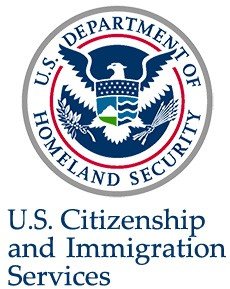Certain H-4 dependent spouses to get Employment Authorization

DHS extends eligibility for Employment Authorization to certain H-4 dependent spouses of H-1B nonimmigrants seeking employment-based lawful permanent residence
WASHINGTON – US Citizenship and Immigration Services (USCIS) Director León RodrÃguez announced today that, effective May 26, the Department of Homeland Security (DHS) is extending eligibility for employment authorization to certain H-4 dependent spouses of H-1B nonimmigrants who are seeking employment-based lawful permanent resident (LPR) status. DHS amended the regulations to allow these H-4 dependent spouses to accept employment in the United States.
Finalizing the H-4 employment eligibility was an important element of the immigration executive actions President Obama announced in November 2014. Extending eligibility for employment authorization to certain H-4 dependent spouses of H-1B nonimmigrants is one of several initiatives underway to modernize, improve and clarify visa programs to grow the U.S. economy and create jobs.
“Allowing the spouses of these visa holders to legally work in the United States makes perfect sense,†RodrÃguez said. “It helps U.S. businesses keep their highly skilled workers by increasing the chances these workers will choose to stay in this country during the transition from temporary workers to permanent residents. It also provides more economic stability and better quality of life for the affected families.â€
Eligible individuals include certain H-4 dependent spouses of H-1B nonimmigrants who:
Are the principal beneficiaries of an approved Form I-140, Immigrant Petition for Alien Worker; or
Have been granted H-1B status under sections 106(a) and (b) of the American Competitiveness in the Twenty-first Century Act of 2000 as amended by the 21st Century Department of Justice Appropriations Authorization Act. The Act permits H-1B nonimmigrants seeking lawful permanent residence to work and remain in the United States beyond the six-year limit on their H-1B status.
DHS expects this change will reduce the economic burdens and personal stresses H-1B nonimmigrants and their families may experience during the transition from nonimmigrant to lawful permanent resident status, and facilitate their integration into American society. As such, the change should reduce certain disincentives that currently lead H-1B nonimmigrants to abandon efforts to remain in the United States while seeking lawful permanent residence, which will minimize disruptions to U.S. businesses employing them. The change should also support the US economy because the contributions H-1B nonimmigrants make to entrepreneurship and science help promote economic growth and job creation. The rule also will bring US immigration policies more in line with those laws of other countries that compete to attract similar highly skilled workers.
Under the rule, eligible H-4 dependent spouses must file Form I-765, Application for Employment Authorization, with supporting evidence and the required $380 fee in order to obtain employment authorization and receive a Form I-766, Employment Authorization Document (EAD). USCIS will begin accepting applications on May 26, 2015. Once USCIS approves the Form I-765 and the H-4 dependent spouse receives an EAD, he or she may begin working in the United States.
USCIS estimates the number of individuals eligible to apply
for employment authorization under this rule could be as high as 179,600 in the
first year and 55,000 annually in subsequent years. USCIS reminds those
potentially eligible that this rule is not considered effective until May 26, 2015.
Individuals should not submit an application to USCIS before the effective
date, and should avoid anyone who offers to assist in submitting an application
to USCIS before the effective date.

